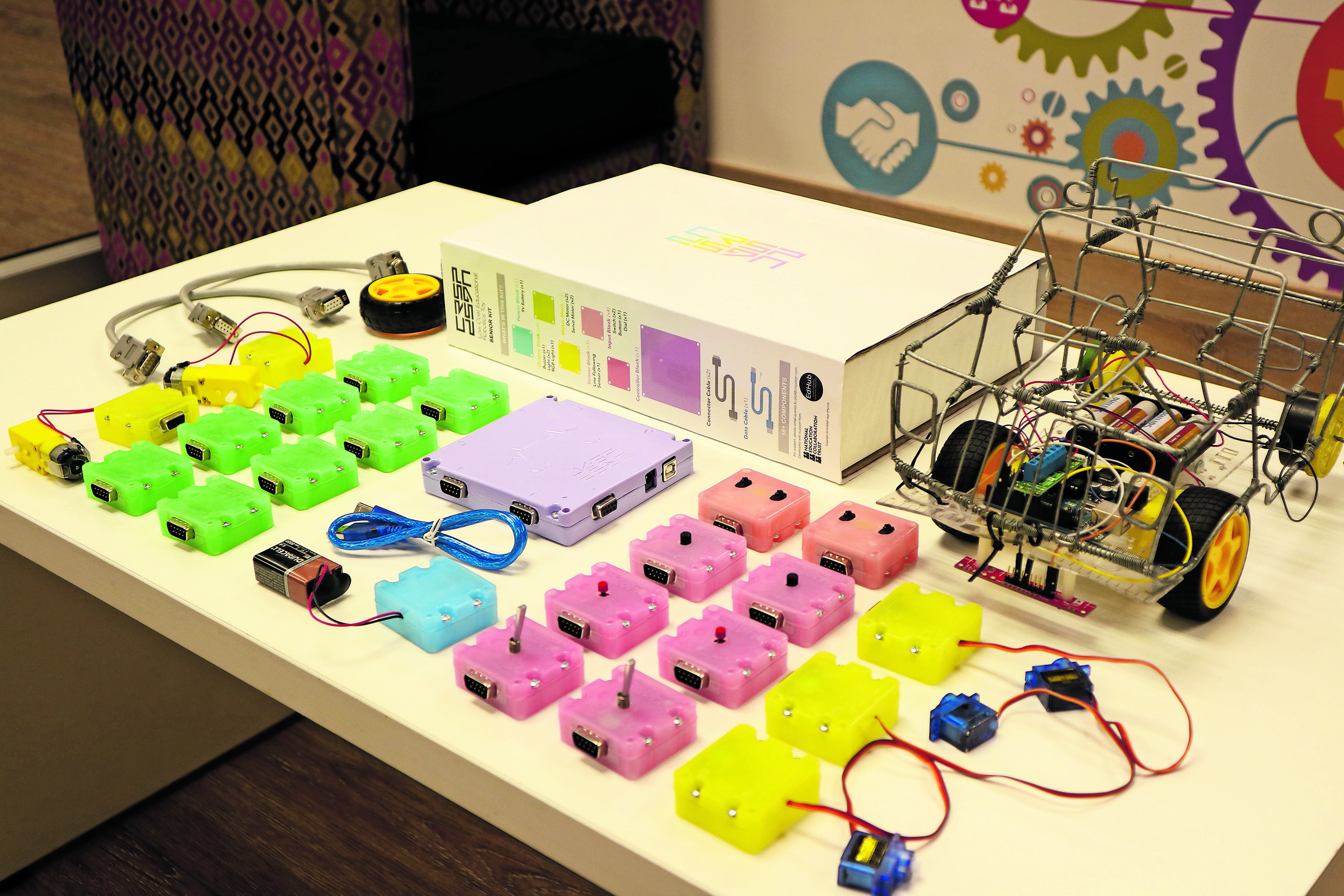The National Education Collaboration Trust is piloting three tools in Gauteng and KwaZulu-Natal schools to help bring robotics and coding into South African classrooms
The 2004 white paper e-Education: Transforming Learning and Teaching through Information and Communication Technologies formed the department of basic education’s (DBE) response to dealing with how to introduce and effectively use technology in and around classrooms to improve teaching and learning, and begin to close the “digital divide” that exists. Much has happened since 2004, and technology is being leveraged in classrooms using tools that support learners, teachers and administrators to better achieve education outcomes.
The National Education Collaboration Trust (NECT) Innovation unit is piloting three tools in schools in Gauteng and KwaZulu-Natal. They are CRSP dsgn, School in a Box and Syafunda. CRSP dsgn has created low-cost, modular educational robotic toy (LCERT) electronic kits for schools, with the vision of bringing affordable robotics and coding into every South African classroom. The activities that accompany the LCERT hardware and software are designed to enhance the existing curriculum and teach learners interdisciplinary skills that will support their holistic development. This innovation represents the type of technologies NECT thinks will continue moving into classes — those that support holistic development and enable learners to thrive in the future world of work and play.

This thinking is already beginning to permeate across the education landscape and there has been a move away from technologies that merely seek to replace current tools (e.g. Smartboards as they were implemented) to technologies that seek to enhance teaching and learning. An example of the latter that NECT is currently piloting is the Syafunda Maths and Science tablet tool, which first identifies the gaps in maths and science knowledge and skills, then tailors activities for learners while addressing the local concern of connectivity by providing a localised server with all required content.
NECT is not the only supporter of ed-innovation and using technology to support teaching and learning. Injini Incubator is the first education technology incubator in South Africa, which is supporting EdTech organisations to improve their offerings and enter the marketplace. Innovation Edge focuses on the early childhood care and education, and seeks to start providing learners with the building blocks for a successful future.
Collecting, measuring and analysing data at the learner, school, district or provincial level is tough, to say the least. The majority of learner level data in across South African schools is housed in the South African School Administration and Management System (SA-SAMS), which is owned by the DBE and provided to schools at no cost. However, extracting and consolidating this data at the provincial, district, and circuit levels has historically proven to be very challenging. The system is built on an old technology platform, with poor data validation and no connectivity, and thus has not been optimally used in past years.
The DBE, along with stakeholders NECT, Michael & Susan Dell Foundation, Zenex Foundation, the Fred Foundation and the ELMA Foundation are working together to modernise SA-SAMS and make it available to all schools. The new SA-SAMS will streamline school administration and simplify management processes and functions, allowing for more teaching and learning time and better access to and analysis of information. The DBE has selected the Free State and North West provinces as the pilot sites for the rollout of the modernised SA-SAMS solution that will happen in 2019.